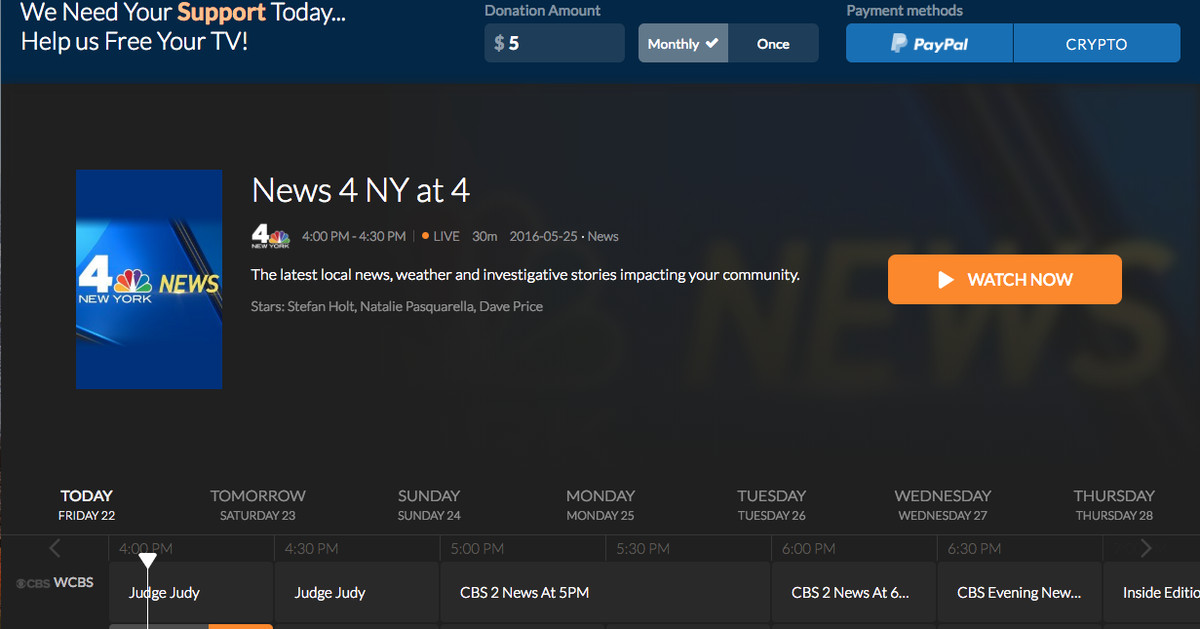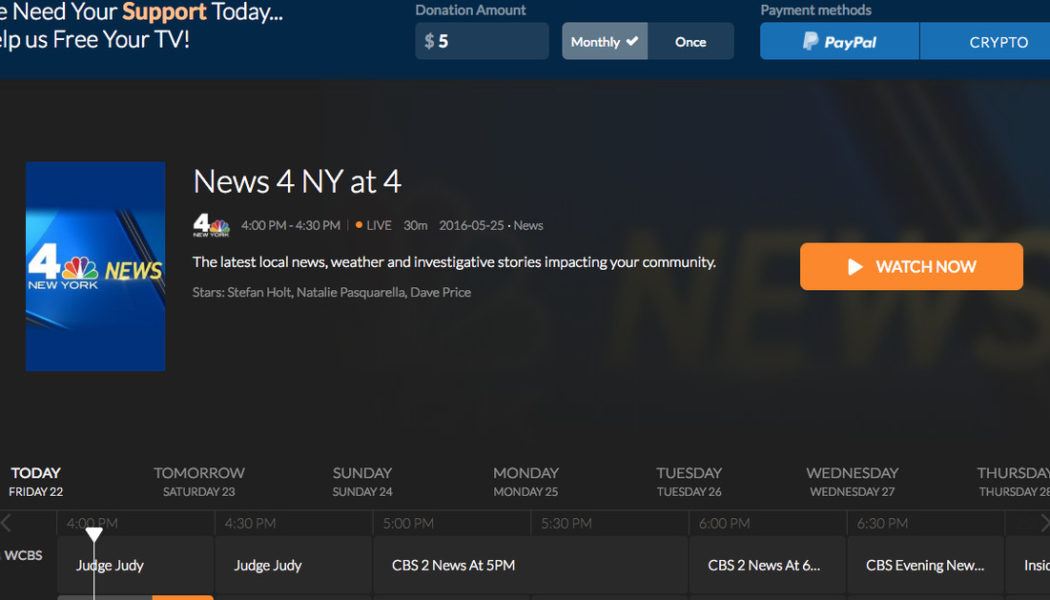
Things looked bad for Locast before, and they just got even worse. A judge this week permanently prohibited streamer Locast from continuing operations of its business, a decision that follows a yearslong legal standoff between major broadcasters and the scrappy streaming provider.
A permanent injunction order signed by Judge Louis L. Stanton this week stated that Locast founder David Goodfriend and his nonprofit Sports Fans Coalition NY, which operates the Locast service, “are permanently restrained and enjoined from operating” the free TV streaming service.
The injunction follows a series of rapid-succession developments that have led to Locast’s apparent demise, after the big four broadcasters suing the company — ABC, CBS, Fox, and NBC — secured a legal victory in early September in their fight against the streamer, after which Locast suspended its service.
The major broadcasters sued the live TV streamer in 2019 alleging that Locast’s business violated copyright law. Locast’s nonprofit business hinged on an exemption in copyright law that permits re-transmission of their broadcasts by nonprofits. Locast didn’t technically charge its users anything to access its service, however it did frequently prompt them for monthly donations.
Earlier this month, a court sided with the big four by determining that fees that Locast was pulling in from these donations exceeded “the actual and reasonable costs of maintaining and operating the service,” a stipulation of the copyright exemption that the court determined Locast defied. Almost immediately, the service notified customers that it would suspend its services.
“As a non-profit, Locast was designed from the very beginning to operate in accordance with the strict letter of the law, but in response to the court’s recent rulings, with which we respectfully disagree, we are hereby suspending operations, effective immediately,” the company told customers in an email at the time.
The order specifically notes that Goodfriend and his organization are not barred from applying for a stay of the permanent injunction, but also notes that it similarly does not bar the broadcasters themselves from opposing the stay. Representatives for the company did not immediately return a request for comment.









